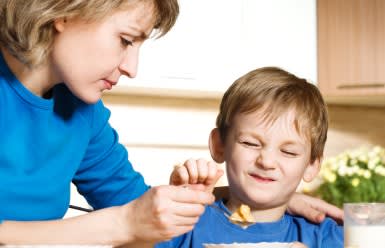As a Parent Educator I get asked a lot of questions. “Why doesn’t my child listen?” “How do I foster responsibility in my kids?” Then there’s the parent that wants to know, “ So, do you ever lose it with your kids? Do you ever yell?”

I always get kind of flustered. I don’t know what to answer. If I say no, I would be lying (there it is, I do yell). If I fess up and say yes, will I lose their professional respect? I mean, how good of a Parent Educator can I be if I also yell at my kids? Shouldn’t I be above all that?
It all boils down to this; I am not a very good liar. So after my initial confusion, I opt for the honest, come clean, approach. This is what I say:
“Of course I yell. I get tired and impatient. I get annoyed and frustrated. I am human and my kids are kids. But over the years of teaching, I have learned how to let off steam without damaging my kid’s self-esteem. I try for the most part to yell without accusing, blaming, name calling or humiliating my kids.”
I don’t end there (once I am on the topic, I might as well give them my whole shpiel): “I have also learned all the things that set me off and the stuff that made me mad and still makes me mad. That helps and I don’t yell as much anymore.”
I hope I don’t sound too self-righteous. I try to teach methods that take the feelings and needs of parents into account. I want to help parents manage the trials of everyday living with kids naturally and simply. I also want kids to have their needs met. I want their feelings to be respected and I want them to feel loved.
I say this because I remember the feelings of pain when I was yelled at as a kid. How I felt misunderstood. And now as a parent, I see how it easy it is to get so irritated with my kids. Learning how to deal with the frustration of being a parent without hurting my kids was high priority for me. I was ready to listen to anyone who could teach me how to do that.
Here are 4 things that have helped me and can help you stop losing it with your kids:
1) Talk about yourself.
I teach parents to use one of the most helpful, productive and effective communications tools, the “I” statement. Every member of the family can use this handy skill. This helps keep the yelling from getting hurtful.
Instead of accusing:
“You are acting like a baby with all this crying and yelling!”
Speak about your feelings:
“I am getting frustrated with all this fighting.”
“I am having trouble holding onto my patience with all the loud yelling going on around me.”
Children can also be taught to use “I” statements. This will help them speak respectfully, reducing the times you feel anger towards them.
Instead of accusing:
“You are so stupid!”
Teach them to speak about themselves:
“I get upset when you tease me about my questions.”
“I don’t like it when you touch my stuff without my permission!”
3) Acquire a friend.
As it says in Pirkei Avot: “K’ney l‘chah chaver.”
If you really want to get a handle on your anger, you might want to find a friend to help you talk through your feelings. This way you have a healthy outlet. You ideally want someone who will validate your feelings and help you gain some perspective. You also want to make sure she does not let you wallow in your negative feelings but forces you to see the good in the situation.
I have one such friend and her support has been invaluable.
4) Take care of yourself.
Being tired is one of the things that triggers my anger. It is harder for me to control my temper if I have not gotten a good night’s sleep. Ditto for hungry and being ill. So I try to keep those things in check as much as I can.
It is also helpful to let your kids know how you are feeling. At those times, I warn my kids: “Guys, I am not feeling well/tired/hungry. I don’t have a lot of patience right now. I am going to need a lot of cooperation.” They are usually pretty helpful and kind after I let them know how I am feeling.
To recap: Dealing with anger can be tricky, but there are techniques to help. Learning good communication skills, acquiring a friend and taking care of yourself.
Adina Soclof, MS. CCC-SLP, works as a Parent Educator for Bellefaire Jewish Children’s Bureau facilitating How to Talk so Kids will Listen and Listen so Kids will Talk workshops as well as workshops based on Siblings Without Rivalry. Adina also runs parentingsimply.com.
The words of this author reflect his/her own opinions and do not necessarily represent the official position of the Orthodox Union.



